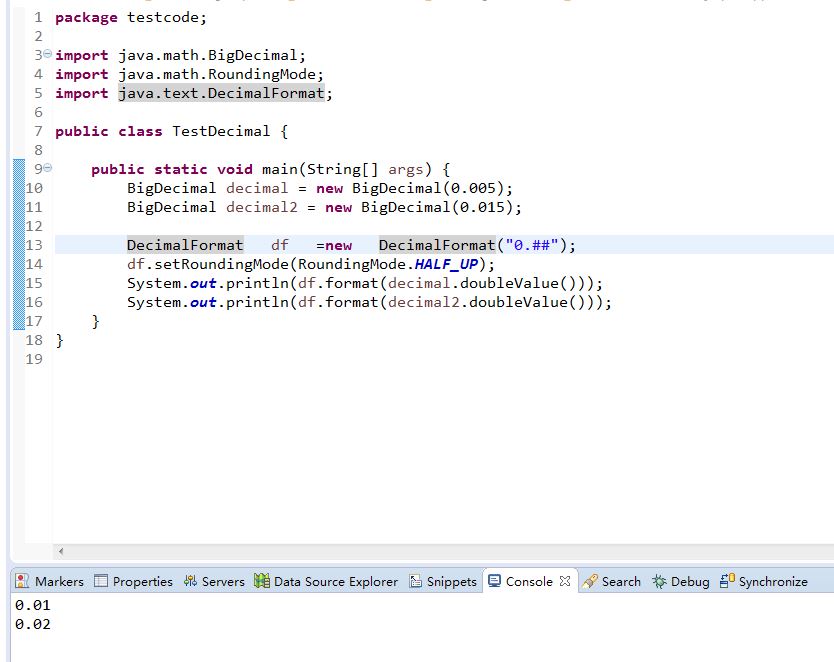double四舍五入问题 求解
BigDecimal decimal = new BigDecimal(0.005);
BigDecimal decimal2 = new BigDecimal(0.015);
DecimalFormat df =new DecimalFormat("0.##");
df.setRoundingMode(RoundingMode.HALF_UP);
System.out.println(df.format(decimal.doubleValue()));
System.out.println(df.format(decimal2.doubleValue()));
输出的答案都是0.01 为什么,我希望第二个输入的是0.02
new BigDecimal最好用string,你直接写数字的话,结果不是你想要的,
这样:BigDecimal decimal2 = new BigDecimal("0.015");
如果需要保证精度,最好是不要使用BigDecimal的double参数的构造函数,因为存在损失double参数精度的可能,最好是使用BigDecimal的String参数的构造函数。最好是杜绝使用BigDecimal的double参数的构造函数。
你看错了吧,为啥我运行出来的就是;
decimal1=0.01
decimal2=0.02
new BigDecimal最好用string,你直接写数字的话,结果不是你想要的,
这样:BigDecimal decimal2 = new BigDecimal("0.015");
如果需要保证精度,最好是不要使用BigDecimal的double参数的构造函数,因为存在损失double参数精度的可能,最好是使用BigDecimal的String参数的构造函数。最好是杜绝使用BigDecimal的double参数的构造函数。
没问题啊,代码测试结果就是0.02啊
decimal Round(decimal d, int decimals, MidpointRounding mode)
可以试试这个能不能用